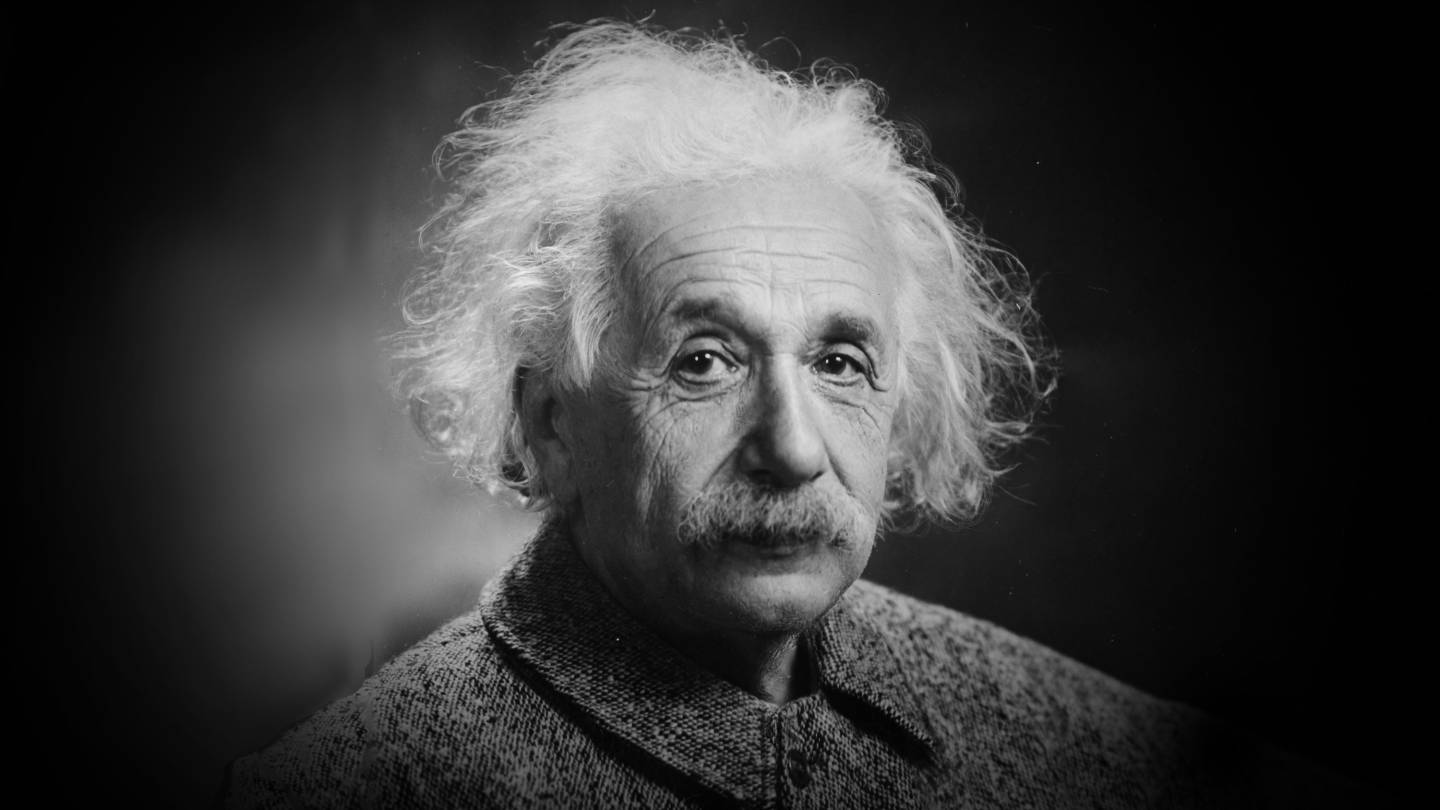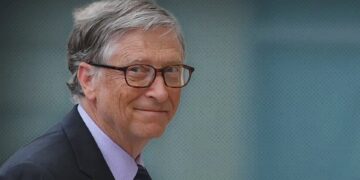Albert Einstein was a German-born physicist who developed the special and general theories of relativity and won the Nobel Prize for Physics in 1921 for his explanation of the photoelectric effect. Einstein is best known for developing the theory of relativity but he also contributed significantly to the development of the theory of quantum mechanics. His work is also known for its influence on the philosophy of science. He received the 1921 Nobel Prize in Physics for his services to theoretical physics, and in particular for his discovery of the law of the photoelectric effect. Einstein is generally considered the most influential physicist of the 20th century.
Albert Einstein Profile
| Name | Albert Einstein |
| Date of Birth | 14 March 1879 |
| Birth Place | Ulm, Germany |
| Father’s name | Hermann Einstein |
| Mother name | Pauline Koch |
| Wife name | Mileva Maric (1903–1919) Elsa Lowenthal (1919–1936) |
| Profession | scientist, physicist |
| Children | 2 sons |
| Death | 18 April 1955 |
| Death Place | New Jersey, United States |
| Siblings | A sister |
| Award | Nobel Prize |
Early life and education
Albert Einstein was born on 14 March 1879 in Ulm, state of Württemberg in the German Empire. Einstein’s parents were secular middle-class Jews. His father, Hermann Einstein, was originally a salesman and later ran an electrochemical factory with moderate success. His mother Pauline Koch used to run the family home. Einstein had a sister, Maria, who was born two years later.
Albert attended a Catholic primary school in Munich for three years from the age of five. At the age of eight he was transferred to the Luitpold Gymnasium where he attended primary and secondary schooling until he left the German Empire seven years later. Einstein’s education was interrupted by repeated failures in his father’s business.
Einstein was eventually able to get into the Swiss Federal Institute of Technology in Zurich especially because of his excellent math and physics scores in the entrance exams. He still needed to complete his pre-university education first and thus attended a high school in Aarau, Switzerland, played by Jost Winteler.
Albert Einstein’s Personal Life
Einstein and Marik married in January 1903, and in May 1904 their son, Hans Albert Einstein , was born in Bern, Switzerland. Another son, Eduard, was born in Zurich in July 1910. He got divorced on 14 February 1919 after being separated from his wife for five years.
Einstein married Elsa Lowenthal in 1919, after being in a relationship with him from 1912. He moved to the United States in 1933. Elsa was diagnosed with heart and kidney problems in 1935 and died in December 1936.
In 1923, Einstein fell in love with a secretary named Betty Newman who was the niece of a close friend, Hans Muhsam. In a volume of letters released by the Hebrew University of Jerusalem in 2006, Einstein described about six women, including Margaret Lebach, Estella Katzenlenbogen, Tony Mendel and Ethel Michanowski, with whom he spent time and received gifts from them during his marriage to Elsa.
Albert Einstein Profession
- After graduating in 1900, Albert Einstein spent nearly two frustrating years searching for a teaching position. He acquired Swiss citizenship in February 1901 but was not admitted for medical reasons. With the help of Marcel Grossmann’s father, he secured a job as an Assistant Examiner Level III at the Swiss Patent Office in Bern.
- His position at the Swiss Patent Office became permanent in 1903 although he was passed over for promotion until he had fully mastered machine technology.
- By 1908 he was recognized as a leading scientist and appointed lecturer at the University of Bern. In 1909 Einstein was appointed co-professor.
- In April 1911 Einstein became a full professor at the German Charles-Ferdinand University in Prague, accepting Austrian citizenship in the Austro-Hungarian Empire to do so. In July 1912, he returned to his alma mater in Zurich. From 1912 to 1914, he was Professor of Theoretical Physics at ETH Zurich, where he taught analytical mechanics and thermodynamics.
- On 3 July 1913 he became a member of the Prussian Academy of Sciences in Berlin. In 1920 he became a foreign member of the Royal Netherlands Academy of Arts and Sciences.
Albert Einstein Inventions and Discoveries
As a physicist, Albert Einstein had many discoveries but is perhaps best known for his theory of relativity and the equation E=MC2, which foreshadowed the development of nuclear power and the atomic bomb.
Theory of relativity
Einstein first proposed a special theory of relativity, taking physics in a new direction, in his paper “On the electrodynamics of moving bodies” in 1905. By November 1915, Einstein had completed the general theory of relativity, and Einstein considered this theory to be the culmination of his life’s research.
He was convinced of the properties of general relativity because it allowed a more accurate prediction of the orbits of planets around the Sun that was lacking in Isaac Newton’s theory, and for a more detailed, nuanced explanation of how gravitational forces worked. Huh.
Einstein’s claim was confirmed by British astronomers Sir Frank Dyson and Sir Arthur Eddington during observations and measurements during the 1919 solar eclipse and thus a cosmic science mark was born.
Einstein’s E=MC2
Einstein’s 1905 paper on the matter/energy relationship proposed the equation E=MC2:- the energy of a body (E) is equal to the mass (M) of that body which is the speed of light squared (C2). This equation suggested that small particles of matter could be converted into large amounts of energy, a discovery that led to the beginning of nuclear power.
The famous quantum theorist Max Planck supported Einstein’s claim thus becoming a star of the lecture circuit and the academician, serving in various positions before becoming director of the Kaiser Wilhelm Institute for Physics (today the Max Planck Institute for Physics). Known as) from 1917 to 1933.
Albert Einstein Awards and Honors
Einstein received many awards and honors, and in 1922 he was awarded the Nobel Prize in Physics in 1922 for his services to theoretical physics, and in particular for his discovery of the law of the photoelectric effect. In 1921 none of the nominations met the criteria set by Alfred Nobel, so the 1921 prize was carried forward and awarded to Einstein in 1922.
Honor given to Albert Einstein:
- Nobel Prize 1921 Fellow of the Royal Society.
- 1921 LMS Honorary Member.
- 1924 Royal Society Copley Medal.
- 1925 Fellow of the Royal Society of Edinburgh.
- 1927 Ames Gibbs Lecturer.
- Popular biographies list number 30.
legacy
A veritable mountain of books have been written on the life of the iconic thinker since Einstein’s death, including Albert Einstein: His Life and the Universe by Walter Isaacson and Einstein: A Biography by Jürgen Neufe. Einstein’s own words are presented in the collection “The World as I See It”.
In 2018, a team of scientists confirmed an aspect of Einstein’s general theory of relativity that light from a star passing near a black hole would be stretched to longer wavelengths by an extreme gravitational field.
Tracking star S2 their measurements indicated that the star’s orbital velocity exceeded 25 million km (kph) per hour as it neared the supermassive black hole at the galaxy’s center, escaping its gravitational pull. Its appearance changes from blue to red as the wavelength increases.






















